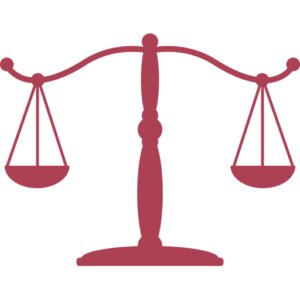Best Brokerage Lawyers in Netherlands
Share your needs with us, get contacted by law firms.
Free. Takes 2 min.
Free Guide to Hiring a Real Estate Lawyer
Or refine your search by selecting a city:
List of the best lawyers in Netherlands
About Brokerage Law in Netherlands
Brokerage law in the Netherlands governs the activities of brokers who facilitate transactions involving financial products, real estate, and other types of brokerage services. Dutch law requires brokers to comply with strict regulations to ensure transparency and protect the interests of both parties involved in any transaction. Moreover, brokers must be registered and, in some cases, licensed by relevant Dutch authorities to operate legally. This regulatory framework aims to promote fair trading practices and ensure that brokers are qualified and act in an ethical manner.
Why You May Need a Lawyer
There are several situations in which you might need legal assistance related to brokerage in the Netherlands:
- If you believe a broker has violated the terms of your agreement, a lawyer can help you understand your legal rights and options.
- In cases where there are misrepresentations or fraudulent activities, legal advice can be crucial in seeking compensation or rectification.
- Legal guidance is often essential when drafting or reviewing brokerage contracts to ensure compliance with local laws and to protect your interests.
- If you are a broker facing compliance issues or accusations of malpractice, a lawyer can provide defense and representation.
- In complex transactions involving multiple jurisdictions, a lawyer can offer valuable insights into navigating international brokerage laws.
Local Laws Overview
The key aspects of local laws relevant to brokerage in the Netherlands include:
- Financial Supervision Act (Wet op het financieel toezicht or Wft): This act consolidates various rules regarding the supervision of financial markets, including brokerage services.
- Consumer Protection: Legislation ensuring that brokers provide accurate information and fair terms to protect consumer rights.
- Data Protection: The General Data Protection Regulation (GDPR) applies, ensuring brokers handle personal data appropriately and lawfully.
- AML and KYC Regulations: Anti-Money Laundering laws and Know Your Customer requirements mandate brokers to conduct due diligence on clients to prevent fraudulent activities.
- Real Estate Brokerage Regulations: Specific rules apply to real estate brokerage, with licensing requirements and codes of conduct under the supervision of the NVM (Dutch Association of Real Estate Agents).
Frequently Asked Questions
What qualifications must a broker have in the Netherlands?
Brokers typically need to have relevant industry-specific qualifications, experience, and in some cases, a license from a regulatory body.
How can I verify if a broker is legitimate?
You can verify a broker's legitimacy by checking their registration with authoritative bodies like the Dutch Financial Markets Authority (AFM) or industry-specific associations.
What are my rights if a broker mismanages my account?
If a broker mismanages your account, you may be entitled to damages. Legal advice can help you determine and pursue your rights.
Are brokerage commissions regulated in the Netherlands?
In many sectors, brokerage commissions are negotiated terms but must be disclosed clearly as part of the agreement.
Is a contract necessary for brokerage services?
A written contract is highly recommended to outline the scope of services, fees, and the broker’s obligations, although verbal agreements can sometimes be binding.
Can I terminate a brokerage agreement prematurely?
Termination clauses should be specified in your contract, but it is possible under specific conditions. Legal advice might be needed for proper termination.
What steps are involved in filing a complaint against a broker?
Filing a complaint often involves notifying the broker, followed by raising the issue with relevant regulatory authorities if unresolved.
What is the role of the AFM concerning brokers?
The AFM regulates financial brokers to ensure compliance, market transparency, and consumer protection.
What is a fiduciary duty in brokerage?
A fiduciary duty refers to the broker’s obligation to act in the best interests of their client, providing honest and fair advisory services.
What recourse is available for investment losses due to broker advice?
You may have recourse for losses if you believe the broker acted negligently or against applicable laws; legal action can be pursued with legal support.
Additional Resources
Useful resources for those seeking legal advice in brokerage in the Netherlands include:
- Authority for the Financial Markets (AFM): Offers guidance on financial regulations and licensed brokers.
- NVM (Dutch Association of Real Estate Agents): Provides information and oversight for real estate brokers.
- Consumer Complaints Board: Assists with mediating disputes between brokers and clients.
- Legal Aid Centers: Provide free or low-cost legal assistance to those needing help with brokerage issues.
Next Steps
If you need legal assistance in brokerage matters, consider taking the following steps:
- Identify the nature of your issue and gather all relevant documents and communication with the broker.
- Consult with a legal professional specializing in brokerage law to discuss your case and potential legal remedies.
- Reach out to relevant authorities such as the AFM if you suspect regulatory non-compliance.
- Explore mediation or arbitration services if appropriate, as these can be effective in resolving disputes outside of court.
- Stay informed about your rights as a consumer or a broker under Dutch law to better navigate potential issues in the future.
Lawzana helps you find the best lawyers and law firms in Netherlands through a curated and pre-screened list of qualified legal professionals. Our platform offers rankings and detailed profiles of attorneys and law firms, allowing you to compare based on practice areas, including Brokerage, experience, and client feedback.
Each profile includes a description of the firm's areas of practice, client reviews, team members and partners, year of establishment, spoken languages, office locations, contact information, social media presence, and any published articles or resources. Most firms on our platform speak English and are experienced in both local and international legal matters.
Get a quote from top-rated law firms in Netherlands — quickly, securely, and without unnecessary hassle.
Disclaimer:
The information provided on this page is for general informational purposes only and does not constitute legal advice. While we strive to ensure the accuracy and relevance of the content, legal information may change over time, and interpretations of the law can vary. You should always consult with a qualified legal professional for advice specific to your situation.
We disclaim all liability for actions taken or not taken based on the content of this page. If you believe any information is incorrect or outdated, please contact us, and we will review and update it where appropriate.
Browse brokerage law firms by city in Netherlands
Refine your search by selecting a city.
















